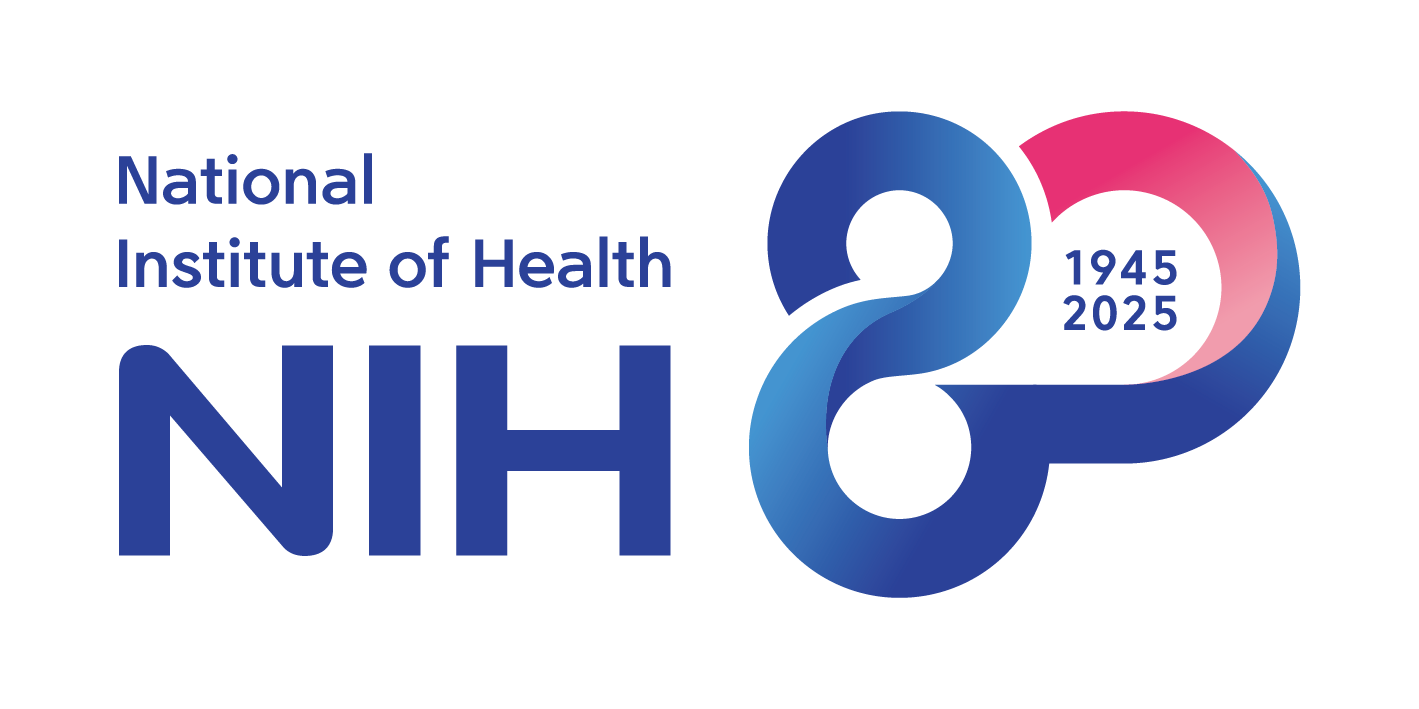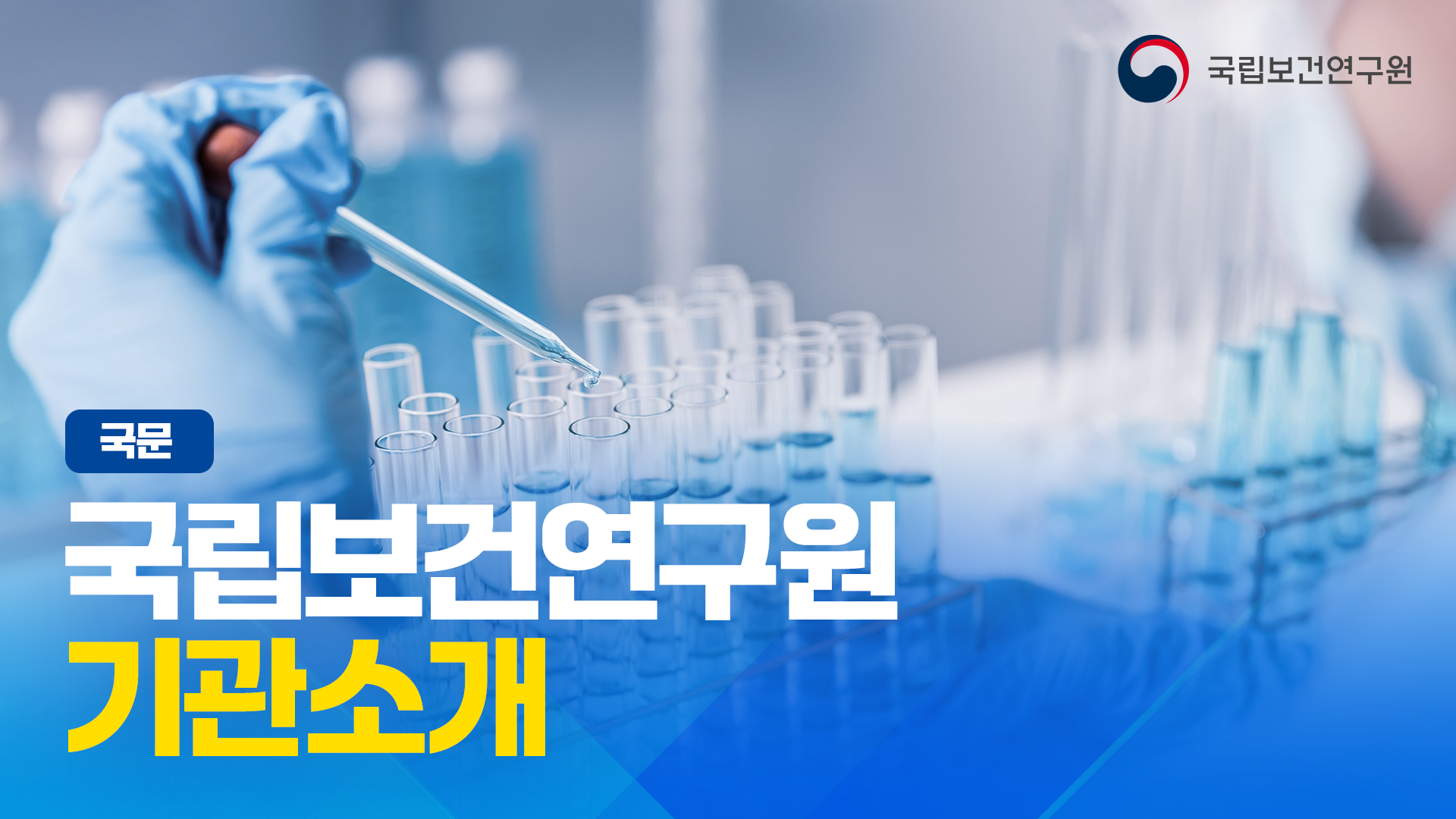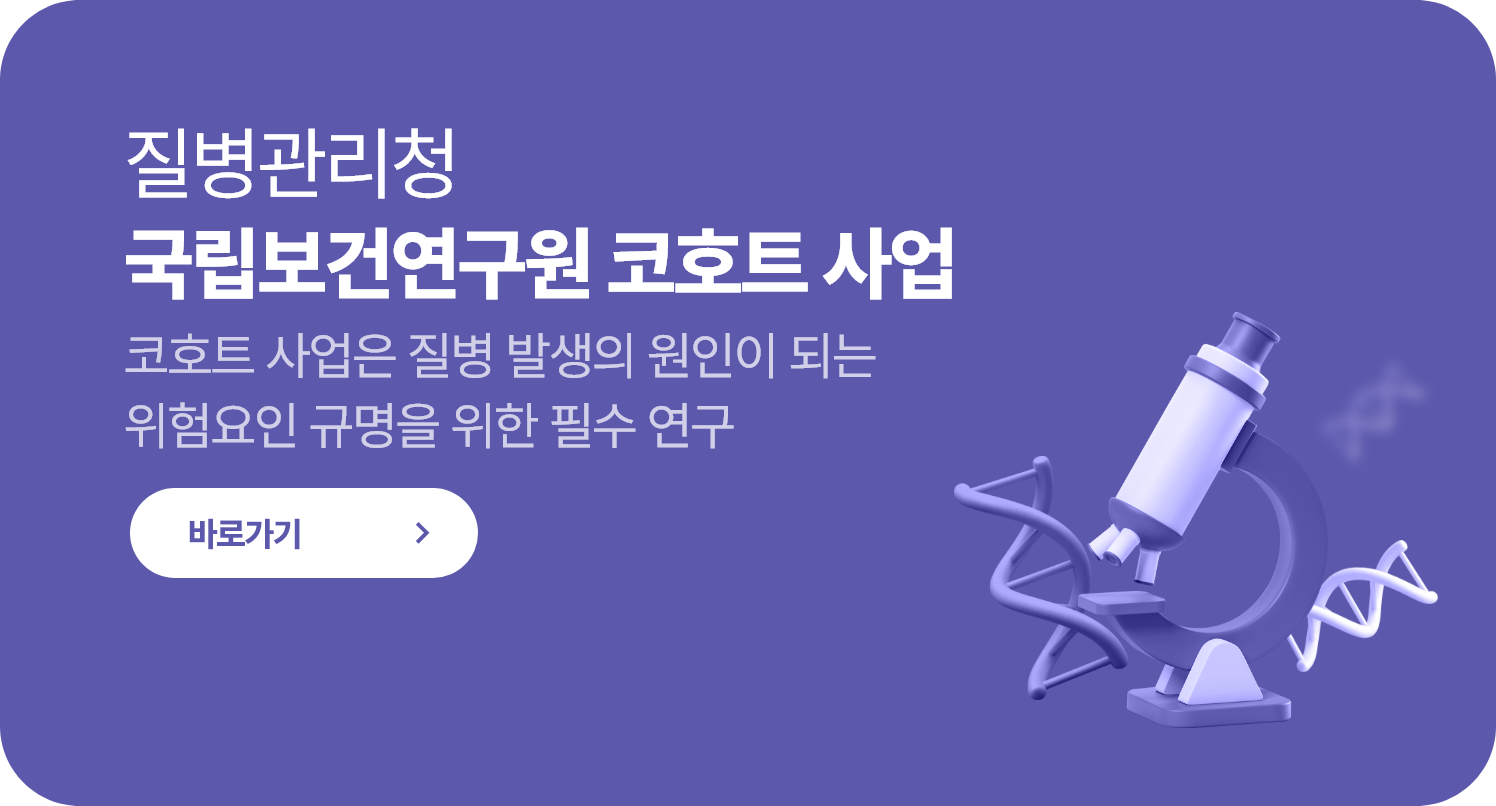이 누리집은 대한민국 공식 전자정부 누리집입니다.
메뉴
전체메뉴
연구사업
연구자원
연구성과
알림자료
연구원 소개
누리집모음
연구사업
연구자원
- 바이오자원
- 데이터 · 지식자원
- 임상연구지원 · 시설
게시판
전체
-
공지·공고
병원기반 인간 마이크로바이옴 연구개발 사업 운영 가이드라인 개정판(2025년)
2025-12-26 -
공지·공고
2026년 국립보건연구원 연구개발사업 설명회 개최(12. 29.)
2025-12-24 -
채용
2025년 질병관리청 국립보건연구원 제4기 기간제근로자 제2차 채용공고 최종합격자 발표
2025-12-24 -
채용
2025년 제4기 질병관리청 국립보건연구원 공무직(연구원) 근로자 채용공고 최종합격자 발표
2025-12-24 -
보도자료
[251209 보도자료]한국, 중증열성혈소판감소증후군 메신저리보핵산(mRNA) 백신 개발 국제 공동 연구 착수
2025-12-22
공지·공고
-
공지·공고
병원기반 인간 마이크로바이옴 연구개발 사업 운영 가이드라인 개정판(2025년)
2025-12-26 -
공지·공고
2026년 국립보건연구원 연구개발사업 설명회 개최(12. 29.)
2025-12-24 -
공지·공고
공공백신개발지원센터 누리집 이전 안내
2025-12-17 -
공지·공고
2025년 한국인유전체역학조사사업(KoGES) 심포지엄 개최 안내 (12. 16.)
2025-12-10 -
공지·공고
제12회 감염병연구포럼 개최 안내
2025-09-03
채용
-
채용
2025년 질병관리청 국립보건연구원 제4기 기간제근로자 제2차 채용공고 최종합격자 발표
2025-12-24 -
채용
2025년 제4기 질병관리청 국립보건연구원 공무직(연구원) 근로자 채용공고 최종합격자 발표
2025-12-24 -
채용
2025년 질병관리청 국립보건연구원 제4기 기간제근로자 채용공고 최종합격자 발표
2025-12-22 -
채용
2025년 질병관리청 국립보건연구원 제4기 기간제근로자 제3차 채용 서류전형 합격자 발표
2025-12-17 -
채용
2025년 질병관리청 국립보건연구원 제4기 기간제근로자 제2차 채용 면접전형 합격자 발표
2025-12-15
보도자료
-
보도자료
[251209 보도자료]한국, 중증열성혈소판감소증후군 메신저리보핵산(mRNA) 백신 개발 국제 공동 연구 착수
2025-12-22 -
보도자료
[251121]질병관리청-국제백신연구소 백신 연구개발 협력 강화를 위한 연례점검회의 개최
2025-12-22 -
보도자료
[251110 보도자료]감염병 백신 연구개발 성과교류회 개최
2025-12-22 -
보도자료
[250619 보도자료]mRNA에서 미래로. 감염병 대응을 위한 첨단 백신 기술 전략 논의
2025-12-22 -
보도자료
[250410] '파킨슨질환, 함께라면 이길수 있습니다.' 질병청 레드튤립 캠페인 개최
2025-12-22
연구과제
더보기-
연구과제
[공고] 2026년도 국립보건연구원 신규 연구용역과제(정책) 1차 통합공고 현황
2025-12-09 -
연구과제
2025년도 질병관리청 국립보건연구원 학술연구개발과제 재공고
2025-08-20 -
연구과제
질병관리청 국립보건연구원 연구개발과제 사전정보요청(RFI) 공고
2025-07-16 -
연구과제
국립보건연구원 연구개발과제 및 성과 관리지침
2025-05-07 -
연구과제
[공고] 2025년도 국립보건연구원 신규 연구용역과제(학술) 1차 통합공고 현황
2025-01-15




